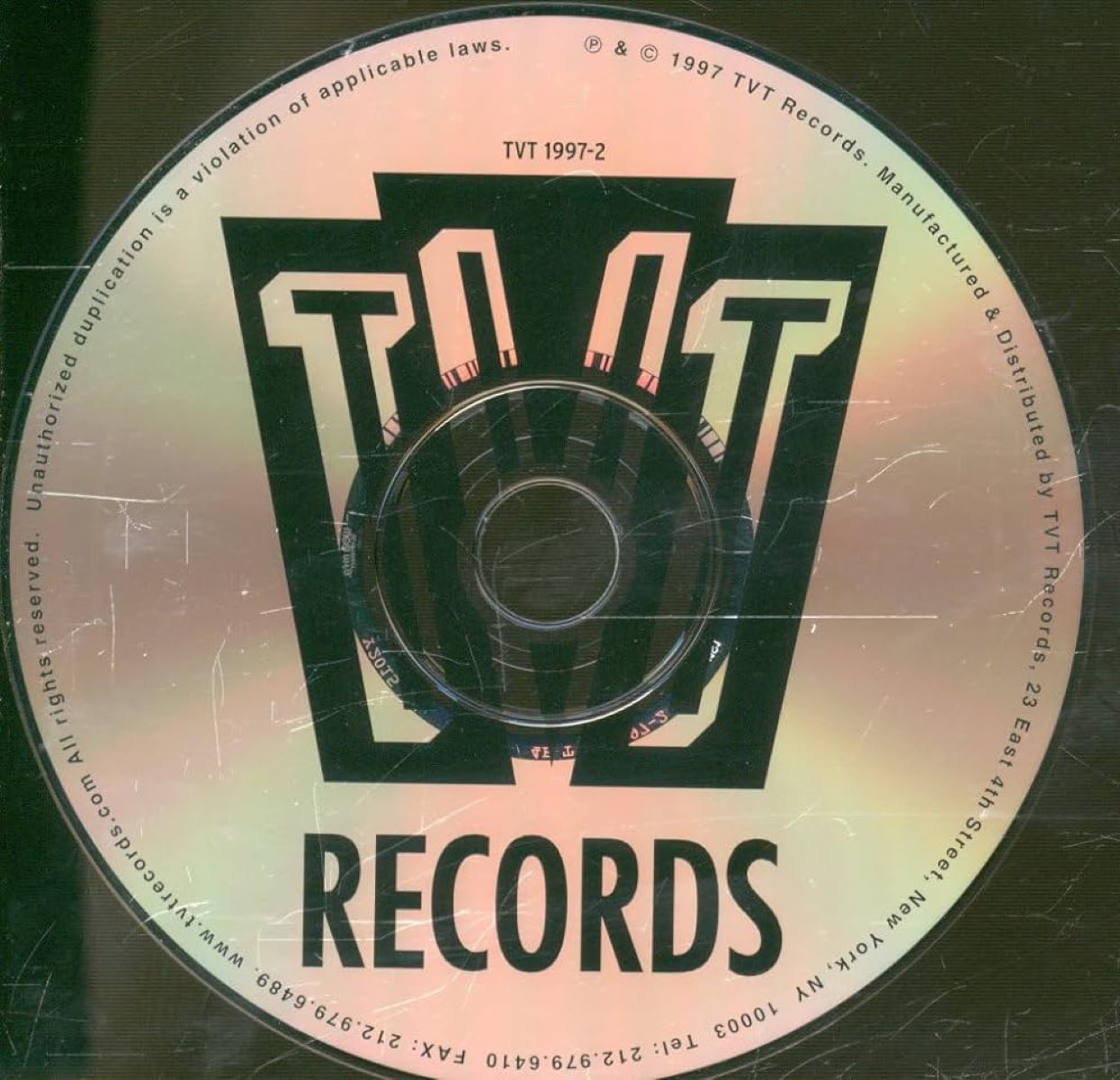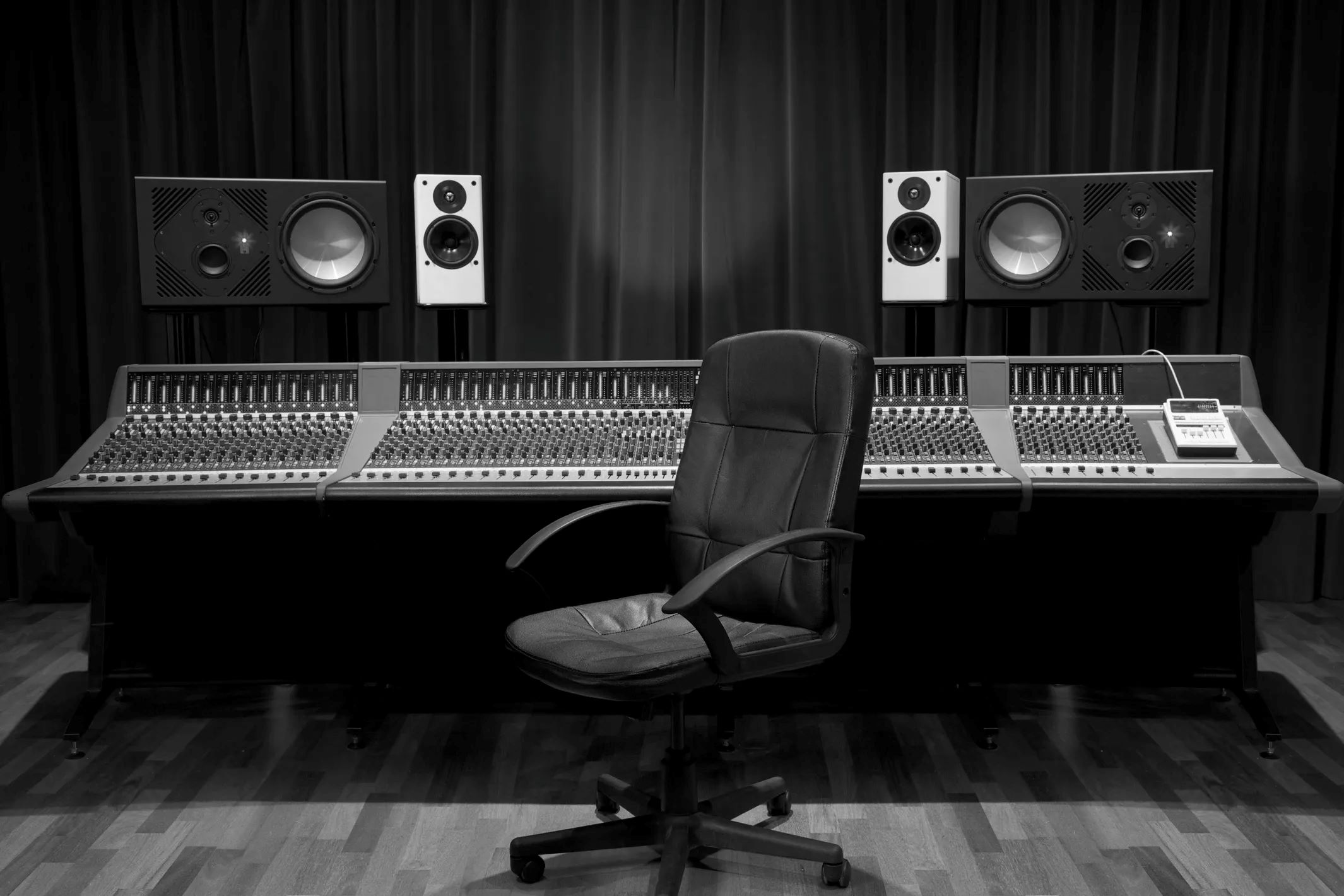Home>Production & Technology>Record Label>What To Do If Record Label Sells Master Recordings


Record Label
What To Do If Record Label Sells Master Recordings
Published: January 24, 2024
If your record label sells your master recordings, it's crucial to know your rights. Discover what steps you can take to protect your music and navigate the situation effectively.
(Many of the links in this article redirect to a specific reviewed product. Your purchase of these products through affiliate links helps to generate commission for AudioLover.com, at no extra cost. Learn more)
Table of Contents
Introduction
Being signed to a record label is a dream come true for many artists and musicians. It’s a significant milestone that provides invaluable support, resources, and exposure to help propel their careers forward. However, not everything goes as smoothly as planned, and there may come a time when a record label decides to sell the master recordings of its artists.
This scenario can be quite distressing for artists, as the master recordings represent their creative work and form the foundation of their musical legacy. It raises questions about ownership, royalties, and future control over their music. In this article, we will explore what artists can do if their record label decides to sell their master recordings, providing guidance on how to navigate this complex situation and protect their best interests.
Before delving into the specific steps artists can take, it’s important to understand the concept of the sale of master recordings and its implications. The master recording refers to the original recording of a song or album, typically owned by the record label that funded and produced the recording.
When a record label sells the master recordings, it means that they are transferring ownership of these original recordings to another entity—the buyer. This new owner then becomes the sole proprietor of the music and gains control over its distribution, licensing, and monetization. As a result, the artist’s involvement and control over their own music may be significantly reduced.
Understanding the Sale of Master Recordings
When a record label decides to sell the master recordings of its artists, it is essential for the artists to have a clear understanding of the implications involved. Here are some key points to consider:
- Loss of Ownership: The sale of master recordings means that the record label no longer retains ownership of the music. Instead, the buyer becomes the new owner and holds the rights to control and exploit the recordings as they see fit. This loss of ownership can be unsettling for artists who have invested their time, talent, and creative energy into their music.
- Potential Impact on Royalties: The sale of master recordings can also impact the artist’s royalty earnings. Depending on the terms of the sale, the artist’s royalty structure may change, and they may receive a smaller percentage or have limited control over how their music is licensed and monetized.
- Control over Artistic Direction: One of the significant concerns artists face when their master recordings are sold is the loss of control over their artistic direction. The new owner may have different ideas or strategies for marketing and promoting the music, which may not align with the artist’s creative vision.
- Opportunities for Reacquisition: Although the sale of master recordings may seem final, there may be opportunities for artists to negotiate and reacquire their music in the future. This could be through buying back the rights or entering into new agreements with the new owner. However, these options may come with their own challenges and require careful negotiation.
- Long-Term Implications: It’s crucial for artists to assess the long-term implications of the sale of their master recordings. This includes considering how it may impact their career trajectory, future collaborations, and overall artistic legacy.
By understanding these key points, artists can better navigate the complex landscape of master recording sales and make informed decisions moving forward. It is important to remember that every artist’s situation is unique, and the specific circumstances surrounding the sale of master recordings can vary. Seeking legal advice and understanding contractual rights are essential steps in protecting their interests and exploring available options.
Assessing the Legal Implications
When faced with the sale of their master recordings, artists must thoroughly assess the legal implications of this transaction. Understanding the legal landscape surrounding their contractual agreements and rights will be paramount in determining their next course of action. Here are some key points to consider:
- Reviewing Contracts: The first step is to carefully review the contracts signed with the record label. Pay close attention to any clauses related to the ownership and sale of master recordings. Understanding the rights granted to the record label and any limitations on the artist’s ability to control their music is crucial in assessing the implications of a sale.
- Consulting an Attorney: Seeking legal advice from an entertainment lawyer experienced in record label contracts is highly recommended. They can provide a comprehensive analysis of the artist’s contractual rights, obligations, and potential recourse options. A lawyer can help artists understand the legality of the sale and how it may impact their legal position.
- Intellectual Property Rights: Understanding the intellectual property rights associated with the master recordings is essential. Artists should determine whether they have any copyright or other intellectual property rights over the music itself, separate from the ownership of the master recordings. These rights may provide additional leverage in negotiations.
- Termination and Buyout Clauses: Artists should pay attention to any termination clauses in their contracts that may be triggered by the sale of master recordings. These clauses may provide an opportunity for artists to terminate their agreements if certain conditions are met. Additionally, buyout clauses may allow artists to negotiate the reacquisition of their music at a later date.
- Rights of Publicity and Image: In some cases, the sale of master recordings also impacts an artist’s rights of publicity and image. Artists should understand whether they have control over how their name, likeness, and brand are used in connection with the music. Protecting these rights can be crucial to preserving their artistic integrity and reputation.
Assessing the legal implications involves a comprehensive examination of the artist’s contractual rights, consulting with legal professionals, and understanding the nuances of intellectual property laws. By being informed about their legal position, artists can effectively navigate the challenges brought about by the sale of their master recordings and make informed decisions about their future endeavors.
Evaluating Your Contractual Rights
When faced with the sale of master recordings, it is crucial for artists to evaluate their contractual rights. Understanding the terms and provisions outlined in their agreements with the record label will provide insights into their options and potential leverage. Here are some key points to consider when evaluating contractual rights:
- Ownership and Control: Review your contract to determine who holds the ownership rights to the master recordings. Assess the extent of control you have over the use, distribution, and licensing of your music. Understanding these terms will help you gauge the impact of the sale on your ability to control and monetize your creative work.
- Termination Clauses: Carefully examine any termination clauses in your contract. These clauses outline the conditions under which either party can terminate the agreement. If the sale of master recordings triggers a termination clause, you may have an opportunity to negotiate new terms or explore alternative options.
- Reversion Rights: Some contracts include reversion clauses that allow artists to regain control of their master recordings after a specified period or certain conditions are met. Evaluate whether you have any reversion rights and the process for exercising them. These rights can provide you with an avenue to regain control over your music in the future.
- Royalty Structure: Examine the royalty provisions in your contract. Understand how royalties are calculated, distributed, and if there are any changes based on the sale of master recordings. This will help you assess the financial impact and ensure you are receiving fair compensation for the use of your music.
- Sample Clearance: If your music contains samples, evaluate the sample clearance provisions in your contract. Understand who is responsible for obtaining clearances and any limitations on the use of the samples. Clear sample rights are crucial for ensuring your music can be legally distributed and sold.
By evaluating your contractual rights, you gain a clear understanding of your legal position and potential leverage when dealing with the sale of master recordings. Consult with an entertainment lawyer to help you interpret and navigate the contract terms effectively. Their expertise will ensure that you make informed decisions and protect your best interests throughout this process.
Communicating with the Record Label
When confronted with the sale of master recordings, open and effective communication with the record label is crucial. Engaging in constructive dialogue can potentially lead to finding mutually beneficial solutions. Here are some key considerations when communicating with the record label:
- Express Your Concerns: Start the conversation by expressing your concerns about the sale of your master recordings. Clearly communicate your emotional attachment to the music and your desire to have a say in its future. This can help the record label understand your perspective and potentially open up room for negotiations.
- Request Information: Ask the record label for specific details about the sale. Inquire about the reasons behind the decision, the intended goals, and how it may affect your rights and future involvement with your music. Gathering as much information as possible will help you make more informed decisions.
- Negotiate New Terms: Use the opportunity to negotiate new terms that align with your interests. For example, you may request increased control over the licensing and distribution of your music, or seek a higher percentage of royalties. Be prepared to present your arguments and consider potential compromises to reach a mutually beneficial agreement.
- Document Everything: Keep a detailed record of all communications with the record label. This includes emails, phone calls, and any agreements or promises made. Having a written record can support your case if any disputes arise in the future.
- Consider Mediation: If communication with the record label reaches an impasse, you may want to consider mediation. A neutral third party can help facilitate discussions and find common ground between you and the record label. Mediation can be a less adversarial approach to resolving conflicts and reaching a satisfactory resolution.
Remember, it’s essential to approach the conversation with professionalism and respect. While you may have concerns and desires regarding the sale of your master recordings, maintaining a constructive dialogue can lead to more positive outcomes. If necessary, consult with an entertainment lawyer to help guide your communication strategy and protect your rights throughout the process.
Seeking Legal Advice
When faced with the sale of master recordings, seeking legal advice should be a top priority for artists. Consulting with an experienced entertainment lawyer can provide invaluable guidance and protect your rights throughout the process. Here’s why seeking legal advice is crucial:
- Expertise in Record Label Contracts: Entertainment lawyers specialize in navigating complex record label contracts. They have extensive knowledge of the industry, contractual terms, and legal precedents. They can thoroughly review your contract, assess your rights, and provide insights into the implications of the sale of master recordings.
- Understanding Your Legal Position: An experienced lawyer can analyze the details of your contract and explain your legal position. They can identify any breaches of contract, contractual obligations, and potential claims you may have against the record label. Understanding your legal rights and options empowers you to make informed decisions.
- Negotiating on Your Behalf: Lawyers can act as your advocate during negotiations with the record label. They can help you articulate your concerns, discuss potential alternatives, and negotiate new terms that protect your interests. With their expertise and negotiation skills, they can potentially secure more favorable outcomes for you.
- Legal Recourse and Dispute Resolution: If conflicts arise regarding the sale of master recordings, an attorney can guide you through legal recourse and dispute resolution options. They can represent you in any legal proceedings, such as arbitration or litigation, and ensure your best interests are represented and protected.
- Contractual Revisions and Amendments: An attorney can help you draft and negotiate contract revisions or amendments to protect your rights moving forward. They can assist in including provisions that address your concerns, such as increased control over your music or reversion rights.
Remember to choose an entertainment lawyer who specializes in music industry contracts and has a track record of successfully representing artists. Their expertise will serve as a valuable resource throughout the process and help you navigate the legal complexities surrounding the sale of your master recordings.
Exploring Alternative Options
When faced with the sale of master recordings, artists should also consider exploring alternative options to protect their music and creative control. While every situation is unique, here are some potential avenues to consider:
- Buyback Negotiations: Engage in discussions with the new owner of your master recordings to explore the possibility of buying them back. This may involve negotiating a price, setting up a payment plan, or proposing alternative arrangements that allow you to regain ownership and control over your music.
- License Agreements: If a complete buyback is not feasible, consider negotiating license agreements with the new owner. This allows you to retain some level of control over the use, distribution, and monetization of your music while still generating revenue from licensing fees.
- Forming Your Own Label: Some artists, especially those with an established fan base and a strong entrepreneurial spirit, choose to form their own record label. This gives them full control over their music and allows them to make decisions regarding marketing, distribution, and creative direction. However, starting your own label requires careful planning, financial resources, and industry connections.
- Exploring Independent Distribution: In the digital age, independent distribution platforms offer artists an alternative to traditional record label arrangements. Explore platforms that allow you to retain ownership of your master recordings and provide you with the tools and resources to distribute and promote your music on your own terms.
- Creative Collaboration: Consider collaborating with other artists, producers, or labels to release your music. By joining forces, you can leverage their resources, expertise, and networks while maintaining a significant level of creative control. Look for partners who align with your artistic vision and values.
Each alternative option comes with its own set of considerations and potential challenges. It is important to carefully evaluate the feasibility, long-term implications, and potential benefits of each option in relation to your specific goals and circumstances.
Additionally, seeking advice from industry professionals, such as entertainment lawyers and music business consultants, can provide valuable guidance in exploring alternative options and creating a strategy that aligns with your objectives.
Building a Stronger Future
While facing the sale of master recordings can be a challenging and disheartening experience, it is essential for artists to focus on building a stronger future. Despite the setback, there are steps you can take to regain control, protect your artistic vision, and continue moving forward. Here are some key actions to consider:
- Create New Music: Shift your focus towards creating new music. Channel your emotions and experiences into your artistry. This allows you to remain productive, connect with your audience, and establish a fresh body of work that reflects your growth and resilience.
- Empower Your Fanbase: Cultivate a strong and engaged fanbase. Interact with your fans on social media, provide exclusive content, and keep them updated on your musical journey. By building a loyal and supportive community, you can continue to thrive independently, regardless of the status of your master recordings.
- Build Your Online Presence: Leverage digital platforms to expand your reach. Create a professional website, engage with streaming services, and utilize social media to connect with new listeners. Consistently share your music, behind-the-scenes content, and personal insights to foster a deeper connection with your audience.
- Seek Collaborations: Collaborate with other artists, producers, and songwriters who share your artistic vision. By joining forces, you can tap into new audiences, exchange ideas, and create diverse and exciting music. Collaborations can also provide valuable networking opportunities within the industry.
- Continual Education: Stay informed about the rapidly evolving music industry landscape. Attend workshops, webinars, and conferences to enhance your knowledge of marketing strategies, digital distribution, and emerging trends. By adapting to industry changes, you can thrive in an ever-changing and competitive environment.
- Financial Savviness: Develop strong financial management skills. Consider diversifying your income streams beyond music sales, such as merchandise, live performances, and sync licensing. This financial stability will provide a solid foundation for your music career and help you navigate any future challenges.
Remember, the sale of master recordings does not define your artistic worth or success. It is your determination, resilience, and creativity that will propel you forward. Stay focused on your passion, surround yourself with a supportive community, and never lose sight of your artistic vision.
While it may take time, building a stronger future is within your reach. Stay committed to your craft, embrace opportunities, and continue to create and share your music with the world. Your journey as an artist is just beginning, and there are limitless possibilities ahead.
Conclusion
The sale of master recordings by a record label can be a challenging and uncertain time for an artist. However, by being proactive, informed, and strategic, it is possible to navigate this situation and protect your artistic vision and interests.
Throughout this article, we have explored various steps artists can take when faced with the sale of their master recordings. Understanding the legal implications, evaluating contractual rights, seeking legal advice, engaging in effective communication with the record label, and exploring alternative options are vital in ensuring your music is protected and your career continues to thrive.
Remember, your music and creativity are your greatest assets. Focus on creating new music, building a strong and engaged fanbase, and establishing a strong online presence. Seek collaborations and continually educate yourself on industry trends and developments.
While the sale of master recordings may seem like a setback, it should not define your future. Keep your artistic spirit alive, stay resilient, and maintain a positive mindset. Your journey as an artist is filled with limitless potential and opportunities.
By staying informed, seeking legal guidance, and taking control of your career, you can navigate the challenges posed by the sale of master recordings and emerge even stronger. Remember, the power to shape your future lies within you.











